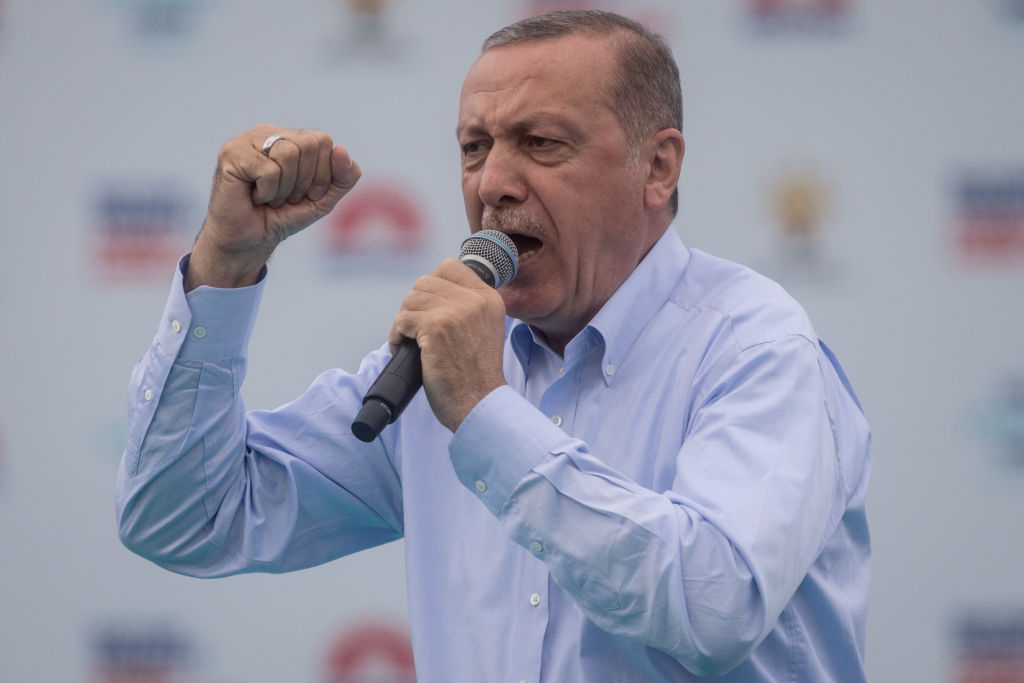Turkey: Erdogan's Campaign against the West
by Giulio Meotti • November 9, 2019 at 5:00 am
"Europe is a cultural continent, not a geographical one... It is its culture that gives it a common identity. The roots that have formed it, that have permitted the formation of this continent, are those of Christianity. [...] In this sense, throughout history Turkey has always represented another continent, in permanent contrast with Europe. There were the wars against the Byzantine empire, the fall of Constantinople, the Balkan wars, and the threat against Vienna and Austria. That is why I think it would be an error to equate the two continents." — Pope Benedict XVI, Le Figaro Magazine, 2007.
In Germany, Turkey controls 900 mosques out of a total of 2,400. These Islamic centers not only serve members of the Turkish diaspora, but also stop them from assimilating into German society. Speaking with Turks in Germany, Erdogan urged them not to assimilate, and called the assimilation of migrants in Europe "a crime against humanity."
Erdogan has also been expanding Turkey beyond its borders – starting with Cyprus, the Greek Islands, Suakin Island (Sudan) and Syria.
Mosques, migrants and the military are now Erdogan's new weapons in his threats against the West.

Turkey's President Recep Tayyip Erdogan "has earned the title of Caliph" according to Turkish journalist Abdurrahman Dilipak.
Erdogan is the head of NATO's second-largest army; he has spies throughout Europe through a network of mosques, associations and cultural centers; he has brought his country to the top of the world rankings for the number of imprisoned journalists and has shut the mouth of German comedians with the threat of legal action. By keeping migrants in Turkish refugee camps, he controls immigration to Europe.
The worse Erdogan behaves, the greater his weight in Europe. In a 2015 meeting, Erdogan reportedly was "openly mocking" European Commission President Jean-Claude Juncker and other "senior European leaders", as Juncker asked Erdogan to consider how he was treated "like a prince" at a Brussels summit.
According to Stratfor's George Friedman:

